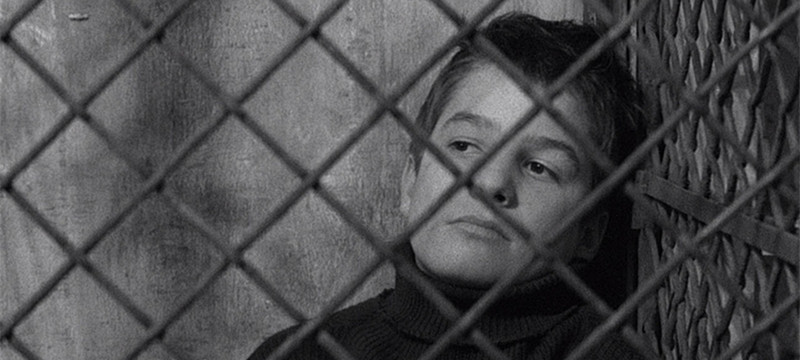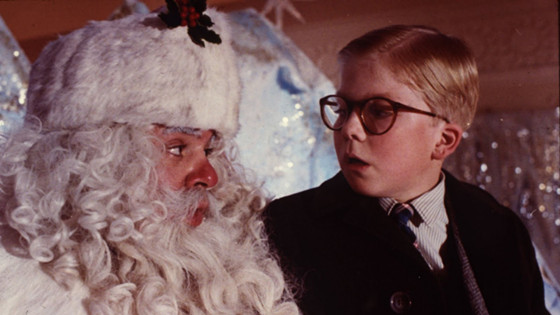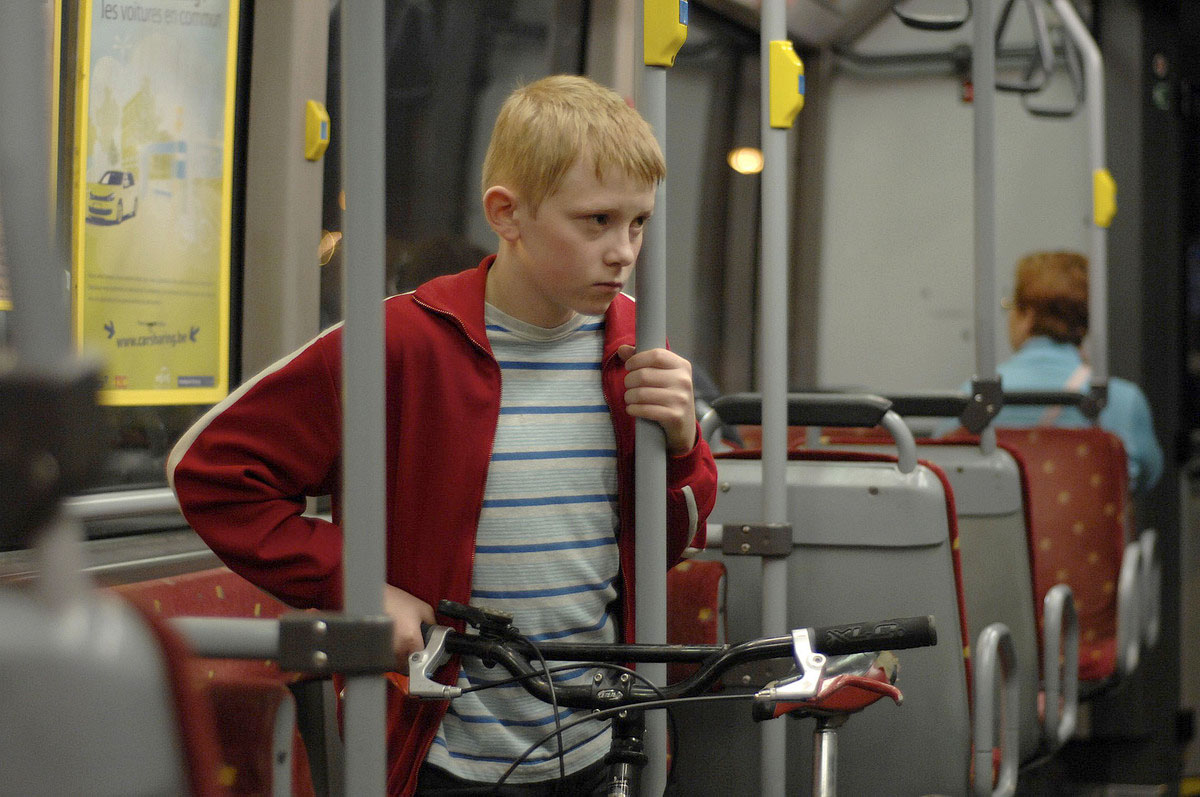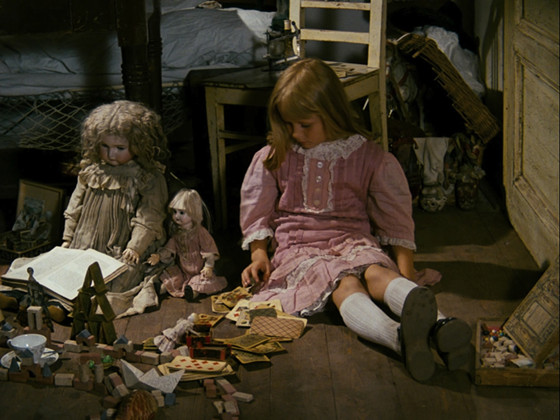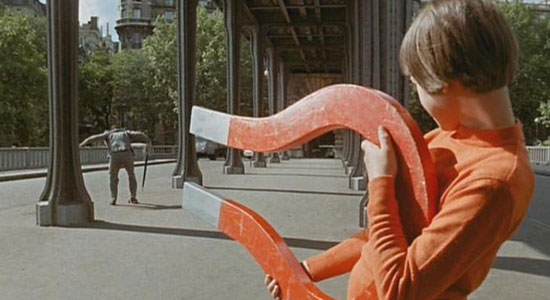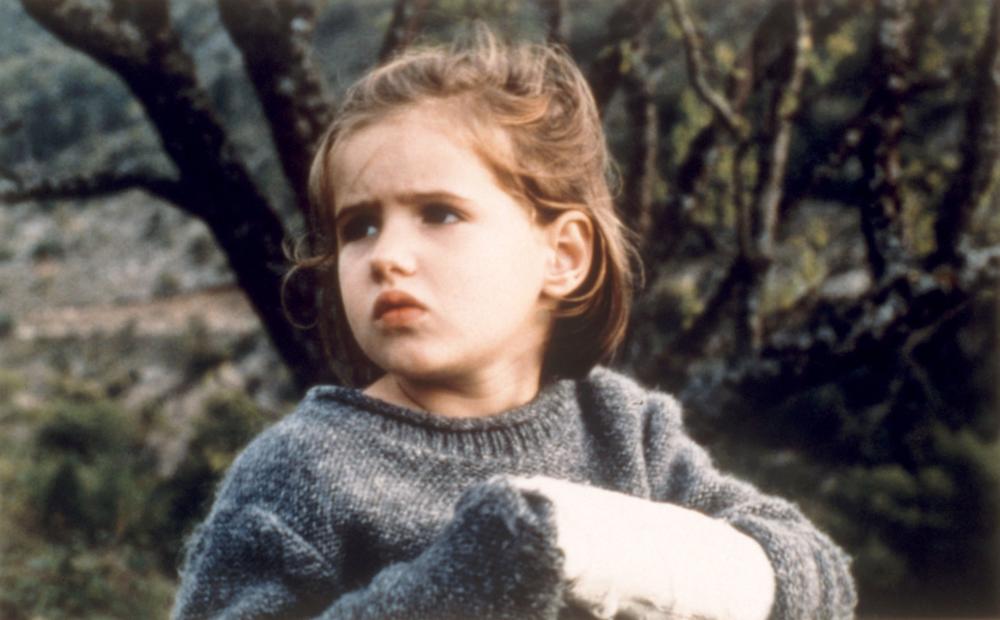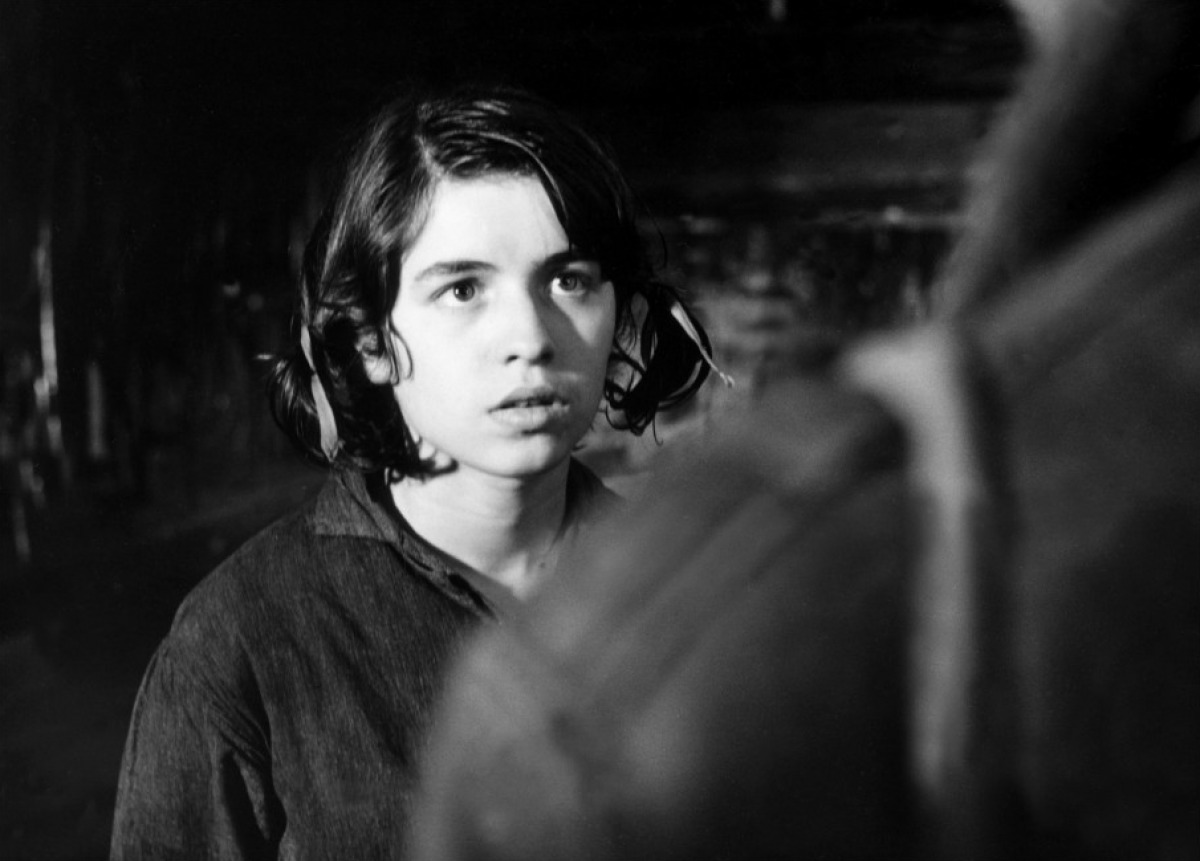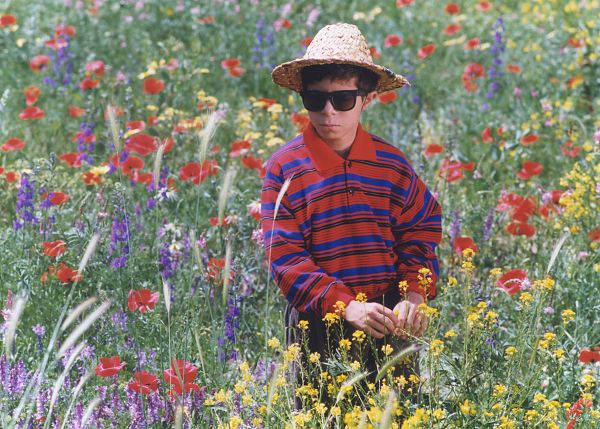Children are often romanticized as living in a childhood paradise. The reality is that they too must grow up and development into adulthood. The films listed below examine the ways in which children’s perspectives are used to deal with heavy themes of life, death, religion, and war. From the comedic accounts of Christmas to heartbreaking depictions of war and oppression, these films gives unique perspectives into the minds of children who are forced to grow up and deal with harsh realities.
25. A Christmas Story (Dir. Bob Clark, 1983)
Ralphie Parker (Peter Billingsley) only wants one thing for Christmas: an official Red Ryder, carbine action, two-hundred-shot range model air rifle with a compass in the stock and “this thing that tells time.” His endeavors to obtain this object of consumerist pleasure prove fruitless as parents, teachers, and department store Santas all remind him that he’ll shoot his eye out. Their warning doesn’t deter Ralphie from his ultimate goal, and he eagerly anticipates finding his coveted gift under the tree on Christmas morning.
From licking frozen poles to a “fragile” leg lamp, A Christmas Story creates a hilarious portrait of childhood innocence and desire. The humor of A Christmas Story relies primarily on the sardonic humor of Ralphie’s adult narration, which is juxtaposed with the zany antics of the Parker family. This adult narration provides key insight into Ralphie’s mentality, recounting childlike whimsy with a raspy voice. It is a humorous perspective that families still watch when it plays (for 24 hours) on Christmas day.
24. Le gamin au vélo (Dirs. Jean-Pierre and Luc Dardenne, 2011)
12-year-old Cyril (Thomas Doret) enters into the foster care system after his father (Jérémie Renier) abandons him. One day, Cyril attacks a hairdresser named Samantha (Cécile de France). In spite of this violent outburst, Samantha decides to take temporary custody of child. The two form a genuine bond, but it isn’t long before Cyril starts running with a bad crowd.
Cyril is a child who is eagerly searching for the love and acceptance that his father was unable to give him. He copes with his past by lashing out, since no one is able to show him the love and acceptance that he wants. The Dardennes’ naturalist style documents Cyril’s stay with Samantha, but it is use of a non-diegetic score (an oddity in the Dardennes’ filmography) that adds a melodramatic level to the boy’s tumultuous life. It is yet another masterpiece in the Dardennes’ oeuvre.
23. Neco z Alenky (Dir. Jan Svankmajer, 1988)
If Lewis Carroll was obsessed with taxidermies and dolls, I’m sure that Alice’s Adventures in Wonderland would look a lot more like Jan Svankmajer’s Neco z Alenky (Alice). Alice takes on the grotesque elements of Svankmajer’s filmography, turning carefully crafted animation into nightmarish scenes of debauchery and creepy critters. It is a cross between a Czech fairytale and a child’s nightmare, using Alice (Kristyna Kohoutova) as the silent witness to Wonderland’s odd inhabitants.
22. Zazie dans le métro (Dir. Louis Malle, 1960)
Zazie (Catherine Demongeot) spends time in Paris with her transvestite uncle (Philippe Noiret), while her mother vacations with a new beau. Zazie’s goal is to ride the Parisian metro, but the workers’ strike forces the child to run amok in the metropolitan city.
Malle’s adaptation of Raymond Queneau’s unfilmable novel is surprisingly faithful. The film maintains the energetic spirit of the book, while also retaining the childlike perspective of the precocious Zazie (who is not as innocent as she seems). Zazie is a kaleidoscope of colors and sight gags, more akin to a Looney Tunes cartoon than to Malle’s much more serious work.
21. Ponette (Dir. Jacques Doillon, 1996)
Four-year-old Ponette (Victoire Thivisol) is involved in a car crash that breaks her arm and kills her mother. As the adults deal with their grief, Ponette is passed from her aunt to a boarding school, where she is left to deal with death on her own terms.
Ponette is a film that can easily fall into sentimentality, but it steers away from false sentiment due to Thivisol’s powerful performance. With her unadulterated mentality, Ponette has no other option but to grapple with death. The grieving Ponette must grow up and discover what these emotions mean, as the adults are too busy to help her. It is truly astonishing to see such a young girl deliver such a wonderful performance.
20. L’enfance nue (Dir. Maurice Pialat, 1968)
François (Michel Terrazon) is a damaged child who is passed from foster home to foster home. When his latest antics result in the death of a cat, his foster parents send him back to the agency, where he is placed in the care of an elderly couple. In spite of his bond with his new family, François is unable to overcome his problematic past, and he is once again up to his old antics.
Pialat’s debut feature bears many similarities to François Truffaut’s The 400 Blows (it isn’t a coincidence that Truffaut is credited as a producer). However, one of the biggest differences is Pialat’s documentarian style, which uses François’ experiences in foster care as a microcosm to discuss the problems inherent in the foster system. François’ ordeal is an unromanticized view of childhood, and his tumultuous past is revealed to be a difficult obstacle to overcome. He is damaged goods, and the minute he lashes out, he is sent back into the unsympathetic foster system.
19. Mouchette (Dir. Robert Bresson, 1967)
“Tragic” is the only word I could come up with to describe the life of Mouchette (Nadine Nortier). Unloved by her parents and tormented by her classmates, Mouchette trudges through life with tattered clothes, a blank stare, and defiant resilience. When a local game hunter rapes her, Mouchette becomes the victim of a series of vicious rumors, and must endure another layer of oppression and angst.
Bresson followed up his highly acclaimed Au hazard Balthazar with this bleak portrait of existential, metaphysical, and transcendental crises. Mouchette’s life is horrible, and her fleeting moments of happiness result in pain and agony. When she makes the decision to end her life, you can’t help but support her. There really is nothing left for her in her small town, except more pain and suffering.
18. Rang-e khoda (Dir. Majid Majidi, 1999)
A father (Hossein Mahjoub) believes his blind son, Mohammed (Mohsen Ramezani), is a burden. When he is forced to take Mohammed from his special school in Tehran, the father will do anything in his power to conceal his son, fearing that Mohammed’s blindness will play a factor in the father’s arranged marriage.
Watching Rang-e khoda (The Color of Paradise) is emotionally draining. Mohammed delivers some of the most heartfelt speeches imaginable, and you will bawl when he asks why God would keep a child from seeing God’s face. The rollercoaster of emotions doesn’t stop there, and the film’s climactic ending will make you feel even worse about the child’s situation.
